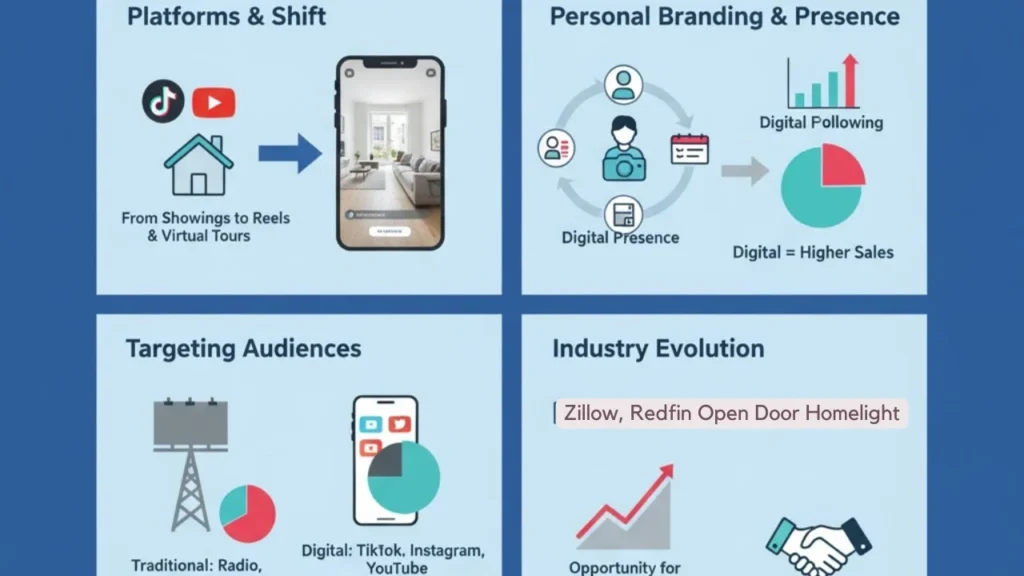By Saleem Mubarak
Once, house hunting meant weekend drives, open houses, and long meetings with real estate agents.
Now, a few swipes on TikTok or Instagram can replace it all. From virtual home tours to viral property reels, social media is rapidly turning the real estate market upside down — and agents who fail to adapt are being left behind.
The Aims Wireless, spoke with Roland RK Rasos, a young and energetic real estate professional based in Houston, about the growing impact of social media on the city’s real estate market.
He explained that social media has significantly transformed the real estate industry, changing how professionals attract and connect with buyers today. This shift, he said, is influencing both client communication and property marketing.
“In the past, people had to schedule appointments with agents, who then managed times to show properties,” he added.
Now, people watch videos on different platforms like Youtube, TikTok and Instagram. After watching the videos, he said, they contact their agents and often demand the houses or condos they see online.
The Need for Online Presence
Real estate visibility is much higher online now and agents have to maintain a stronger presence. They need to list properties on traditional platforms like Zillow and multiple listing services.
However, they need to use other creative platforms like Instagram, TikTok and YouTube. Agents need to stand out in a crowded digital space. Consumers now have access to countless options and are easily distracted by other content, he added.
The Role of Traditional Marketing
Talking about traditional marketing techniques, he mentioned that we cannot ignore their importance as such methods still exist and are effective. However, he said that their effectiveness depends on the client demographic.
For example, he explained that some clients respond only to radio advertisements because they engage with the radio. They may not know much about or prefer not to log onto Instagram or YouTube. Other traditional methods that still work include billboards and telemarketing calls, he added.
He also pointed out that traditional approaches like billboards or phone calls generally do not work on Gen Z or millennial consumers. These younger consumers respond much better to text messages and digital media, as they are tech-savvy, he remarked.

Digital Platforms Increase Sales
No doubt, he said that digital platforms are having a positive impact on property sales by improving brand visibility.
“Real estate professionals with large followings on digital platforms often sell more homes. There is a clear correlation between a large online following and increased sales,” he claimed.
He acknowledged that there are exceptions, as some professionals use traditional marketing to build successful businesses without creating online content. Despite these outliers, he noted that a digital presence does increase sales.
Personal Branding is Essential
He stressed the need for personal branding for real estate professionals in the era of technological advancements. The real estate industry is now highly saturated and everyone has access to digital platforms, he added.
To differentiate themselves, he suggested that agents should leverage their company or personal brand. Agents must stand out which is crucial in the current scenario, as new alternatives for buying and selling now exist.
These alternatives include large real estate tech companies like Open Door, Homelight, Zillow, and Redfin.
Competing with Large Firms
He said that with the help of digital marketing, smaller real estate agents can compete with large firms. This is similar to any saturated industry. To succeed, he explained that agents must carve out a niche that is personal and resonates with the consumer.
Small producers can stand out compared to Zillow, as people usually prefer working with other people. They are more likely to support a resonant story than a large “machine”.
Digital Marketing Strategy: Content and Organic Reach
Mr. Rasos said that a major portion of digital marketing spending goes to content creation, which includes production, graphic design, copywriting, scripting, filming, and editing.
He explained that the majority of spending focuses on content creation and organic reach, which is free. However, he added, the content must be well-produced, as high quality production helps achieve the desired organic reach.
Author Profile

-
Saleem Mubarak is a journalist and real estate writer who covers Houston’s evolving property market with a sharp eye for local trends and investor dynamics. He focuses on how shifting prices, interest rates, and migration patterns shape the city’s real estate future.
He has interviewed leading real estate professionals to bring readers first-hand insights into Houston’s changing market—from rising investor activity to the influence of social media on property buying.
Latest Entries
 PerspectiveOctober 20, 2025How Social Media is Transforming Real Estate Marketing
PerspectiveOctober 20, 2025How Social Media is Transforming Real Estate Marketing BlogOctober 15, 2025Houston Zip Codes Guide: Find Your Ideal Neighborhood
BlogOctober 15, 2025Houston Zip Codes Guide: Find Your Ideal Neighborhood BlogOctober 7, 2025Gold Prices Hit $4,000 Amid U.S. Government Shutdown
BlogOctober 7, 2025Gold Prices Hit $4,000 Amid U.S. Government Shutdown BlogOctober 7, 2025Trump Presidential Library Miami: Controversial Land Deal
BlogOctober 7, 2025Trump Presidential Library Miami: Controversial Land Deal
